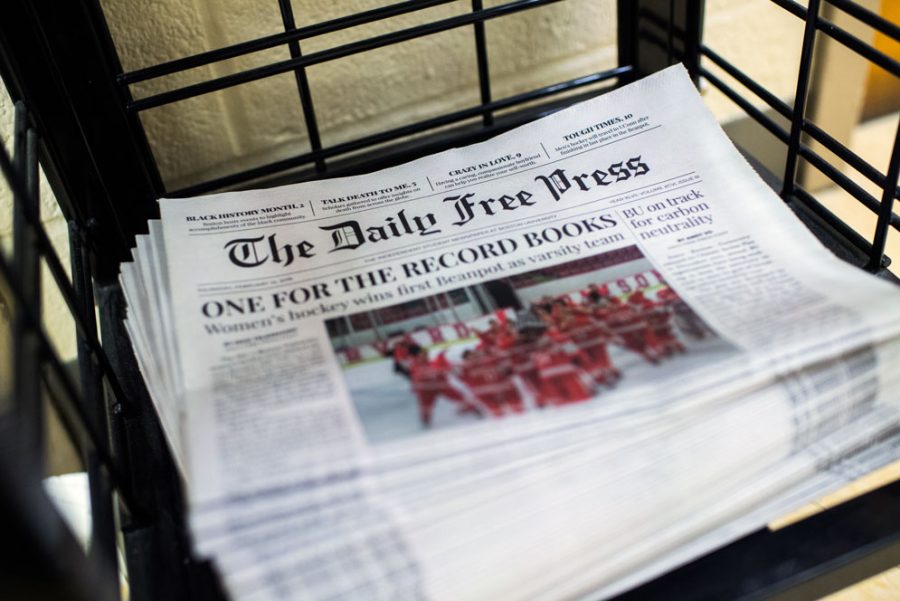Metadiscourse on the vitality of newspapers
A few weeks ago, my parents and I decided to have a family movie night. My dad picked “The Post,” since he wanted to remind me why I signed up to write for the Hoban Visor. Within the film, however, I found more than just inspiration: I finally understood just what makes newspapers so important.
Once upon a time, the founding fathers promised us the freedom of the press so that they could serve, as the Supreme Court put it, “the governed, not the governors.” Newspapers were designed to challenge presidents, protest unfair policies and, most importantly, reveal the truth. Since the birth of our country, the press has been the only enduring ally of people. Even when our own politicians boasted twisted agendas that jeopardized the American people, journalists opened our eyes to fact.
After so many years of offering sight to the otherwise blind, newspapers are in jeopardy. Dwindling support for what’s recently been deemed a dying industry directly results from the increasing influence of cellphones, the availability of televised news programs and the alt-right insistence that the news is somehow “fake.” However, in losing newspapers, we lose a bit of authenticity that contributes to the reality of news.
While the press sustains a certain amount of respect and honesty in television and on the web, there’s still a permissible degree of negligence that comes with automatic live-streaming and posting. How often have newscasters claimed that they simply misspoke on the air and didn’t mean what they said, or just fixed articles and added basic redaction statements in the post script?
Newspapers, to put it colloquially, “hit differently.” There’s no easy solutions or subpar excuses for false information in print. Instead, there are explicit redactions, issued apologies and a subtle loss of legitimacy. In a sense, the expected esteem of print forces reporters and editors to earn the public’s trust time after time.
Furthermore, the unretractable nature of print prevents interference from concerned parties. While Nixon could suspend The New York Times Co., he couldn’t take their articles on the Pentagon Papers from tangible copies of the print. There was no delete button that would wipe the existence of these articles from the internet, or block them from a Twitter feed.
In essence, print brings the truth forward in a way that no other form of press can. By obliterating newspapers, we risk losing some of the foundation that holds the press to their word.
We also risk destroying American jobs. Back in their boom, newspapers didn’t just employ a multitude of reporters, but they also provided work to printers and paperboys. As newspapers slowly migrate from front porches to the internet, the adults and children who made print happen no longer serve any purpose.
The days of early morning paper routes and even earlier print deadlines are gone, replaced by free automation and auto-posting. Once again, work in America surrenders to technology. Even the most basic of first jobs—paper distribution—disappears. Supporting papers doesn’t just support journalists, but also everyone employed behind the bylines.
Like record players, typewriters and disposable cameras, newspapers still serve their purpose far better than their online successors. Two dollars daily may not be the most feasible charge, but it guarantees the longevity of our most vital source of information in society.
The price we pay for newspapers is nominal; the price our country will pay without them is undeniable. It’s time that we bring newspapers back.



